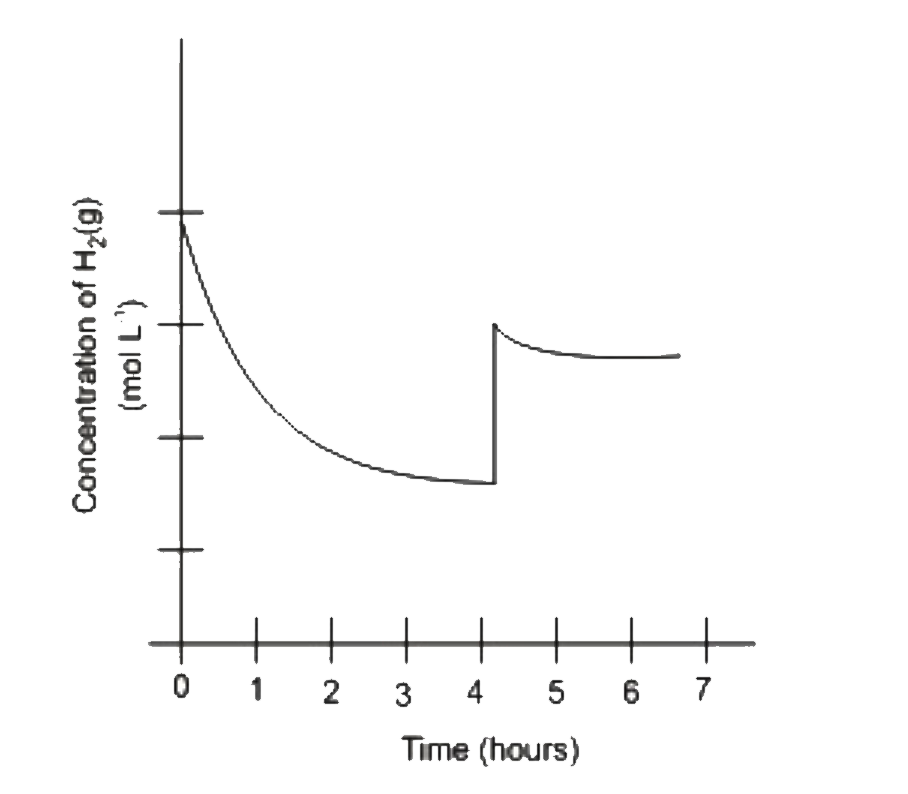100 mL of PH3 on decomposition produced phosphorus and hydrogen. The change in volume is
50 mL increase
500 mL decrease
900 mL decrease
Nil
The correct Answer is:A
2PH3−−→2P(solid)+3H22ml3ml100ml150ml
Increase in volume=150ml−100ml=50ml increase.
Topper's Solved these Questions
- SOME BASIC CONCEPTS OF CHEMISTRYBOOK - ERRORLESS CHAPTER - SOME BASIC CONCEPTS OF CHEMISTRYEXERCISE - Ordinary Thinking (Objective Questions) The mole concept
43 Videos
- SOME BASIC CONCEPTS OF CHEMISTRYBOOK - ERRORLESS CHAPTER - SOME BASIC CONCEPTS OF CHEMISTRYEXERCISE - Ordinary Thinking (Objective Questions) Chemical stochiometry
42 Videos
- SOME BASIC CONCEPTS OF CHEMISTRYBOOK - ERRORLESS CHAPTER - SOME BASIC CONCEPTS OF CHEMISTRYEXERCISE - JEE Section (Matrix Match type questions)
3 Videos
- SOLUTION BOOK - ERRORLESS CHAPTER - SOLUTION EXERCISE - JEE SECTION (JEE (Advanced)2018) (Numeric answer type questions)
3 Videos
- THERMODYNAMICS AND THERMOCHEMISTRY BOOK - ERRORLESS CHAPTER - THERMODYNAMICS AND THERMOCHEMISTRY EXERCISE - JEE section (JEE (Advanced) 2018) Numeric answer type questions
2 Videos
Similar Questions
Knowledge Check
Phosphine on decomposition produces phosphorus and hydrogen. The change in percentage in volume
A50mlB80mlC900mlD75ml100mL of phosphine (PH3) on hearing forms phosphorous (P) and hydrogen (H2). The volume change in the reaction is
Aa decrease of 50mLBan increase of 100mLCan increase of 150mLDan increase of of 50mLPhosphine (PH3) decomposes to produce vapours of phosphorus and H2 gas. What will be the change in volume when 100mL of phosphine is decomposed?
A+50mLB500mLC+75mLD−500mL
100mL of phosphine (PH3) on hearing forms phosphorous (P) and hydrogen (H2). The volume change in the reaction is
View SolutionThe heat change at constant volume for the decomposition of silver (I) oxide is found to be 30.66kJ. The heat change at constant pressure will be
View SolutionPH3, the hydrine of phosphorus is
View SolutionPH3, the hydride of phosphorus is
View SolutionThe reaction between phosphorus (P4) and hydrogen (H2) can result in the formation of phosphine (PH3) as shown :
P4(s)+6H2(g)⇔4PH3(g)
The graph shows the change in concentration of hydrogen for this reaction in which the system was distrubed after four hours.

Which of the following could explain the change in hydrogen concentration at time = 4 hours?
View Solution
